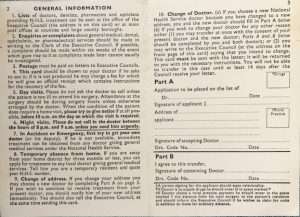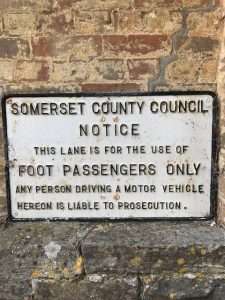“My Nan left me a barometer in her will. I have it hung on the wall and I tap it and announce to my family that the needle is going up or down. I haven’t a clue what it means.”
The message read out on the breakfast show would have found a resonance with many listeners for whom a barometer on the wall was a common sight in younger days.
The barometer occupied a place of importance inside the front door of the farmhouse. It was in the corridor in there was also the hall stand upon which rested the black Bakelite telephone. The number, Long Sutton 217, was easily remembered, it was recited every time there was a call.
The barometer was treated with a sense of gravity comparable with that with which the telephone was answered. Each morning my grandmother would tap on the glass of the barometer that hung on the wall of the farmhouse and ponder the result with a serious air.
Falling pressure meant the approach of changeable weather. In Somerset changeable weather meant rain and rain might mean the loss of hay or harvest.
It was not as though the weather forecast was not listened to on the wireless in the kitchen at breakfast and lunchtimes, or watched on the television evening news on the television in the sitting room. Certainly, weather forecasts lacked the accuracy of those now constantly available online, but how was the daily check on the barometer any more accurate?
Perhaps my grandmother had read the hall barometer for so many years that even the slightest fall or rise of the needle was enough to tell her the prospects for day ahead. To have looked out of the kitchen window would only have confirmed what the needle had told her.
On a small farm, where money was not plentiful and where mistakes could make the difference between a small profit and a significant loss, my grandmother could have given a ready explanation for the seriousness with which she approached the daily tap on the glass.
Presumably, before people’s Nans had barometers, there were numerous local ways of telling what the weather might be, ways passed down from generation to generation.
With three different weather apps on my phone, I would feel no need to tap the glass of a barometer, even if I possessed one. In a generation’s time, will anyone remember the significant part they once played in people’s lives?



